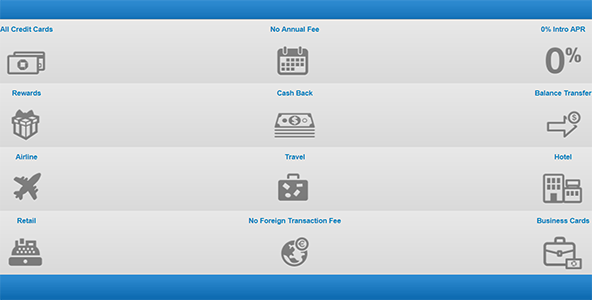Recurring Payment Plans

Recurring payment plans. Recurring payment plans exist when multiple transactions are processed at predetermined intervals, as a result of an agreement for the purchase of products or services that are provided over time. A cardholder authorizes a merchant to charge his or her payment card on a regular basis (usually monthly, but it can be at other intervals) for a period of time, however the interval between any two consecutive transactions cannot exceed one year. The transaction amount can be fixed or it can vary. The recurring payment plan is in effect until canceled by the consumer. A good example is a newspaper subscription where a consumer can be making payments indefinitely, until the subscription is canceled. A recurring plan differs from an installment payment plan in that in the latter you have a fixed amount to be paid and the installments are agreed upon in advance and made until paid in full.
Benefits. Recurring payment plans help simplify the process of billing a cardholder for a product or a service that is being provided on a continuous basis. The main benefits that merchants get from a recurring payment plan are that it reduces costs, associated with the processing of a single payment, while simplifying the billing process and saving time. Recurring payments also help increase customer loyalty, increase efficiency and improve the cash flow by ensuring timely and regular payments.
Key features. A typical merchant / customer relationship involving a recurring payment plan features the following characteristics:
- A consumer agrees to receive ongoing services or goods until the contractual arrangement with the merchant is canceled.
- The consumer gives permission to the merchant to bill his credit card account on a recurring basis.
- A transaction amount is agreed on that may be a fixed amount or may vary with each billing.
- A recurring payment relationship consists of more than the initial transaction, with future payments occurring on a regular cycle: weekly, monthly, etc., but not to exceed twelve months.
Installment payment plans. Installment payment plans are similar to recurring ones, however there is a distinction. Installment payment plans consist of a single purchase of goods or services that is billed to an account in multiple segments, over a period of time. A good example would be a car purchase, where a consumer has agreed to receive a loan for a portion of the purchase amount and to repay that loan over a specified period of time.
Recurring vs. installment payment plans. The distinction between recurring and installment payment agreements is that a recurring transaction is payment for goods or services that are received over time, whereas an installment transaction represents a single purchase, with payment occurring on a schedule agreed by a cardholder and merchant.
Recurring Payment Indicator. Recurring Payment Indicator is used to identify recurring transactions within authorization and settlement messages in card-not-present environment. The Recurring Payment Indicator is required in all authorization and clearing records. Recurring transactions are typically lower risk than single transactions and should be approved, provided the account is in good standing.
Recurring payment plan best practices. For best results and to minimize customer disputes, merchants should incorporate into their billing procedures the following best practices:
- Allow customers to choose the billing date. They know best when the money will be available.
- Inform the cardholder how your business name will appear on their card statements. Ensure that the “Doing Business As” name, or some other name, easily recognized by the cardholder, is used when billing or corresponding with the cardholder. Your processing bank will be able to set your billing descriptor to show the desired name.
- Provide a clear statement of your cancellation policy on the cardholder’s agreement and your website. This will help minimize chargebacks.
- Provide the cardholder with clear information regarding the billing arrangements, all charges related to the delivery of products and services.
- Ensure that billing is discontinued immediately upon the cardholder fulfilling the cancellation terms and provide the cardholder with cancellation confirmation including when the last billing will occur if this has not already occurred, or if a credit is due when the credit will be processed.
- Ensure that the cardholder is notified when goods or services cannot be delivered or provided on the agreed upon date.
- Provide the cardholder with an easily accessible contact number for customer service inquiries, and also the right to terminate the recurring transaction.
- Ensure an authorization request is made and approval is obtained before a payment is submitted for clearing.
- Make sure that all transactions reflect the Recurring Payment Indicator.
- Contact the cardholder to obtain alternative account billing details if the authorization response is a decline.
Merchant pre-billing notification. You should provide a merchant pre-billing notification prior to submitting an authorization request for a recurring transaction and you will see less customer disputes and chargebacks. Following is a sample of such a notification.
“To: customer name@account.com From: merchant name@account.com
Subject: Recurring transaction notification Date: 8 January 2010 03:15:02 -0500
Dear Customer Name,
This email confirms your authorization* of the
transaction listed below, entered on 01/08/2010 at 3:14:49 AM
has been processed and will be debited from your account.
Transaction Origination Date: 01/08/2010
Name on Account: Cardholder Name
Amount: $14.95
Description: Approved recurring charges on 2009-12-08
*You have authorized Merchant Name Services, Inc and your
financial institution to initiate the transaction
detailed below. You have acknowledged that the origination
of debit or credit transactions to your account must comply with
the provisions of local laws. This authorization is to
remain in full force and effect until Merchant Name Services,
Inc has received written notification from you of its
termination in such time and manner as to afford
Merchant Name Services, Inc and your financial institution a
reasonable opportunity to act on it.
Processed for: Merchant Name Services, Inc
Phone #: 800-111-1111
Email: merchant name@isp.com”
Image credit: Corporatetravelsafety.com.


